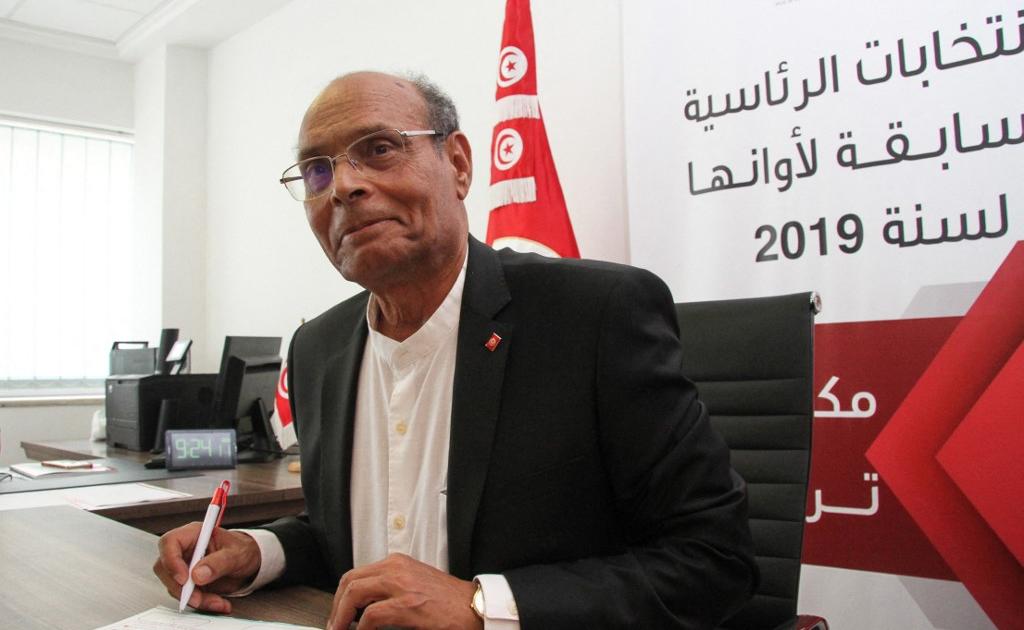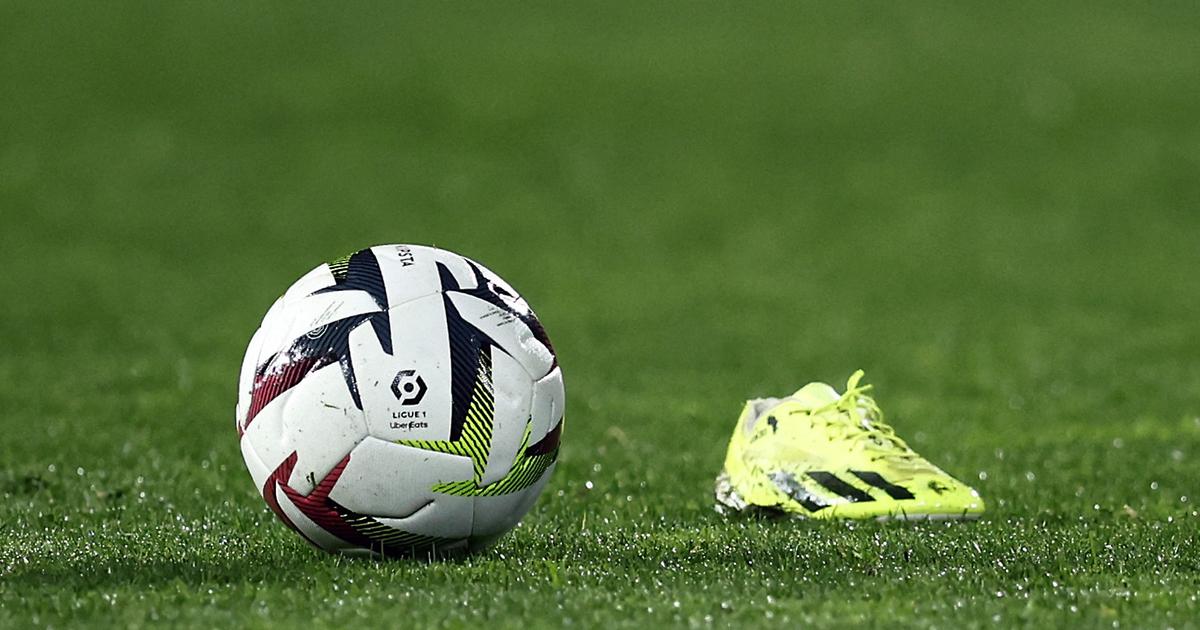Note to readers:
EL PAÍS offers an open section on Future Planet dedicated to reporting daily on the progress of developing countries, the 2030 Agenda, the eradication of poverty and global inequality.
If you want to support our journalism,
subscribe here.
The outbreak of anti-racism protests in the United States in the wake of George Floyd's assassination has resonated beyond its borders, especially in those countries and regions where blacks suffer the most blatant discrimination.
Among them, the Arab world.
As in other areas, Tunisia, the only country in the Arab Springs with a fairly successful democratization process, has assumed a pioneering role in the area, although it is still a long way from eradicating this scourge.
More information
The racism that hides the fear of the other by the coronavirus
End racism to combat global warming
The air that we need
In early June, hundreds of people gathered in central Tunis, the capital, to show their solidarity with the Black Lives Matter movement and denounce the mistreatment and abuse against the country's black community.
It was the only demonstration of support in the entire Arab world.
The main organizing organization was Mnemty (“My Dream”, in Tunisian dialect), a very active NGO that was created after the 2011 revolution to fight against racism.
The news from the US spurred local activists, as explained Inés, creator of the BLM Tunisia website.
“We created it because we realized that the whole world has said enough.
Our goal is to share information and raise awareness in society ”.
“Black Tunisians are still second-rate citizens in our own country.
We suffer racism on the street, in the form of insults.
We are excluded from the public space.
And furthermore, the institutions ignore our identity.
And for women, the situation is always worse, ”denounces Rania Belhadj, an activist in Mnemty for years.
“It is common for us to be treated as
wasif,
which was what slaves used to be called.
Mixed couples are taboo.
I had a partner who was not black and his family sent me serious threats to leave the relationship, "she remembers sadly.
However, racism has been expressed differently in Tunisia, and the Arab world in general, compared to Western countries, especially in rural areas.
Here the phenomenon is linked to the deep mark left by centuries of slavery.
“Traditionally, discrimination was not linked to the color of the skin, but to the fact of belonging to a line of slaves.
It is still quite a stigma today.
On the other hand, if you had very dark skin, but an Arabic surname, you had no problems, "says Marta Scaglioni, an Italian researcher who has recently published a book on racism in Tunisia.
The Maghreb country abolished slavery in 1846, being the first in the Arab and Islamic world to do so, and ahead of several European countries.
“I often meet people who congratulate me because I speak the Tunisian dialect very well.
Or that they ask me: 'What country do you come from?'
As if black Tunisians were strangers.
It's very tough psychologically, especially when you're a teenager, "explains journalist and analyst Houda Mzioudet.
According to activists, this minority represents between 10 and 15% of the population, and is more present in the south.
However, no official statistics have been made.
“During the last decades, a new racism of a phenotypic type, like the western one, has appeared, especially in the big cities, and that has been reinforced by the arrival of thousands of Francophone students and sub-Saharan migrants”, adds Scaglioni.
The members of the ALDA, an organization that brings together the sub-Saharan community in Tunisia, have been able to see on their own skin the contempt of a part of society, deeper than with black Tunisians.
“It is very common that they do not let you enter some bars, or that the police harass you.
So are assaults without motive.
For this reason, many young Sub-Saharan Africans are afraid and tend to go out into the streets in groups ", highlights Blamassi Touré, president of ALDA.
The official narrative denies the existence of racism in the country, often arguing that Islam insists on equality among believers.
“Few Tunisians recognize its existence.
For them that they treat you as
wasif
or
kahluch
(black, in the local dialect) is something affectionate, or a joke, and they say that we are very touchy.
But we don't feel that way at all.
It is an offense.
We don't want to be categorized by the color of our skin, ”says Mzioudet.
The idyllic vision of a tolerant and non-racist Tunisia was severely shaken in late 2016, when three Congolese were stabbed in the center of the capital for no apparent reason.
Just over a year later, Parliament passed the first law against racial discrimination in the entire Arab world, an old claim by Mnemty.
According to the law, insults or derogatory comments will be punished with between one month and one year in prison and a fine of at least 1000 dinars (about 300 euros).
“The law is a victory, but little is applied.
Citizens must be educated about their rights and also institutions, especially the police.
Training courses should be held in the police stations, and there should be some specialized units in the matter ”, warns Belhadj.
Also in the Arab world, the road to equality will be long
Convictions based on this law are very rare.
Therefore, the fact that the court of first instance of Médenine (south of Tunisia) will rule in favor of Hamdane Atig Dali, an 81-year-old citizen requesting to withdraw 'Atig' (literally 'released by', a remnant of the slavery in the country) of his name in all his official documents was considered a historical fact.
Despite the slow pace of change, activists in the rest of the Arab world look with a certain envy towards the small Maghreb country, and demand a similar law.
"Although the Egyptian Constitution of 2014 prohibits any type of racial discrimination, the Penal Code does not define crimes or prescribe penalties," says Nour Khalil, an Egyptian consultant specializing in the rights of migrants and refugees.
Khalil denounces that they are victims of racist behavior in a systematic way, some very violent that can sometimes lead to serious injuries.
"In my work, I have not found an African refugee or migrant who has not suffered racism, at least verbally ... Children are the most vulnerable and suffer it daily on the streets."
Given the lack of freedoms in most Arab countries, the emergence of #BlackLivesMatter in the US has not translated into protests, but it has at least opened the debate about racism on social networks.
The issue has gained considerable visibility thanks to the positioning of some famous blacks, such as the Saudi model Abeer Sinder or the Egyptian actor Mohamed Ramadan.
The testimonies collected on the social networks of the victims of racial discrimination are very similar from end to end of the region, and some have elicited a virulent reaction, with dozens of hateful messages.
In the Arab world too, the road to equality will be long.
FUTURE PLANET can follow on
,
and
, and subscribe
here
to our 'newsletter'
.












/cloudfront-eu-central-1.images.arcpublishing.com/prisa/KMEYMJKESBAZBE4MRBAM4TGHIQ.jpg)


